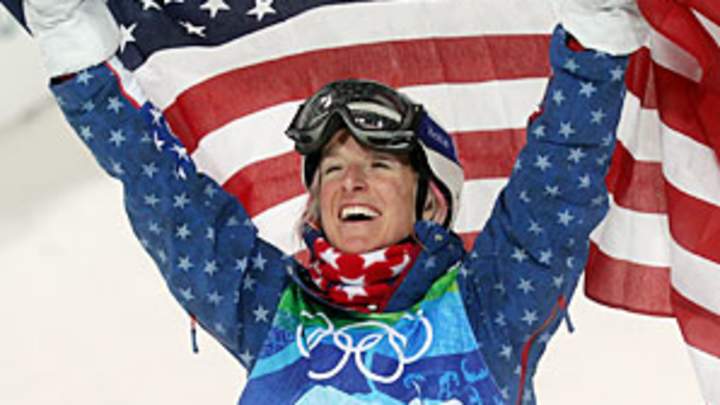U.S. Olympians rise above unstable USOC to succeed on own terms

So what did these "Flies" do? Instead of following the book and deteriorating into chaos, the U.S. Olympians governed themselves in so many ways. In a bad economy, many relied on their own resourcefulness when their endorsement deals dried up, USOC budgets tightened and Home Depot ended its Olympic jobs program for athletes. It was coupon-clipping time. Curlers rented rocks from Canada to save money; freestyle skier Shannon Bahrke launched a coffee bean company with $1 of every bag to be reinvested in her Olympic training; Noelle Pikus Pace started a winter hat-making business to pay for sleds when speaking engagements ended. "We're down to rice cakes," Pace joked.
It was Vancouver or bust for a lot of Olympians. There were few bodies at the USOC to turn to after 54 staffers were laid off, leaving little more than empty picture hooks on the walls of the Colorado Springs headquarters. Somehow, the athletes persevered and have, to the surprise of many, won big despite a lack of structure, with the potential to win the medal count of a Winter Games for first time since Lake Placid -- not the one of Miracle on Ice fame in 1980, but the one opened by New York governor Franklin Delano Roosevelt in 1932. So, yes, the U.S. hasn't ruled the winter podium since the invention of the parking meter and the debut Jack Benny's radio show.
But why the resurgence now? "I think a lot of it is maturity and personal accountability from a lot of the athletes," says Casey Puckett, 37, an alpine veteran turned ski cross competitor in his fifth Olympics. "You take Bode [Miller], he went from hero to goat to hero again. One thing Americans are good at is second chances."
They're also good at improvisation. As Puckett pointed out, there is a liberated persona to the U.S. ski team, particularly in the X Games events. "I feel like Americans are into the different types of self-expression in the snow," Puckett said. "There's been an explosion of it with the new snowboarding events in recent years. It's just different forms of expression ... Americans excel being individual."
These free spirits are particularly good at surviving on their own. The athletes barely paid attention as the musical chairs at the USOC played out. In the past, the USOC's serial state of disarray was only an inside-the-Olympic rings joke about an organization of volunteers who fought over what member got the best office furniture, received a USA blazer or gained an IOC dinner invite. Despite its own dysfunction and infighting, the USOC spent a lot of time preaching the gospel of ethics and etiquette to its athletes. Its leaders began an aggressive enforcement of a conduct code in the early 2000s, demanding the Dream Team stop preening in Athens (where A.I. and Co. were a bust), the Turin athletes to show decorum (a memo Miller, Shani Davis and Chad Hedrick ignored), and the Beijing Olympians to avoid embarrassing China (so the cyclists arrived in smog masks). ''We take full responsibility for any unpleasant episodes,'' said Scherr after each unpleasant episode during his tenure.
The USOC lecture series never failed to fail -- or induce eye rolls. The more heavy-handed the approach the more rebellious the athletes became. The USOC was on the hypocritical side, too. After all, its leaders were the ones who often went peacock on the globe with bold medal predictions and ill-advised slogans, like the "Best in the World" bumper sticker officials placed on the caboose of the U.S. Ski team in Turin. The Hermanator, among other foes, mocked the mantra as the American hopes shrank and Bode's beer belly grew. "Best in the world?" Hermann Maier said with a laugh at a press conference after his bronze in the GS. "The Americans?"
They were punchlines thanks in part to the adults running the USOC show. These days, the Olympian caretakers have backed off. Whether they were simply too occupied with the USOC turmoil to butt in, no one voiced bravado heading into Vancouver. No medal predictions. The "Best in the World" slogan still exists but it's talked about more as an aspiration than as a fact. "You don't want to put one before the other," said Daron Rahlves, a member of the U.S. Alpine team in Turin. "You have to earn it."
Humility looks good on the Americans. Maturity is in the medal count. The athletes found both character traits on their own. Throughout the past two years -- while the USOC was falling apart, hitting its nadir when the Chicago 2016 bid fell on its Yankee Doodle fanny -- who persevered? In a plot twist, "The Flies" have ruled themselves -- and the world.
